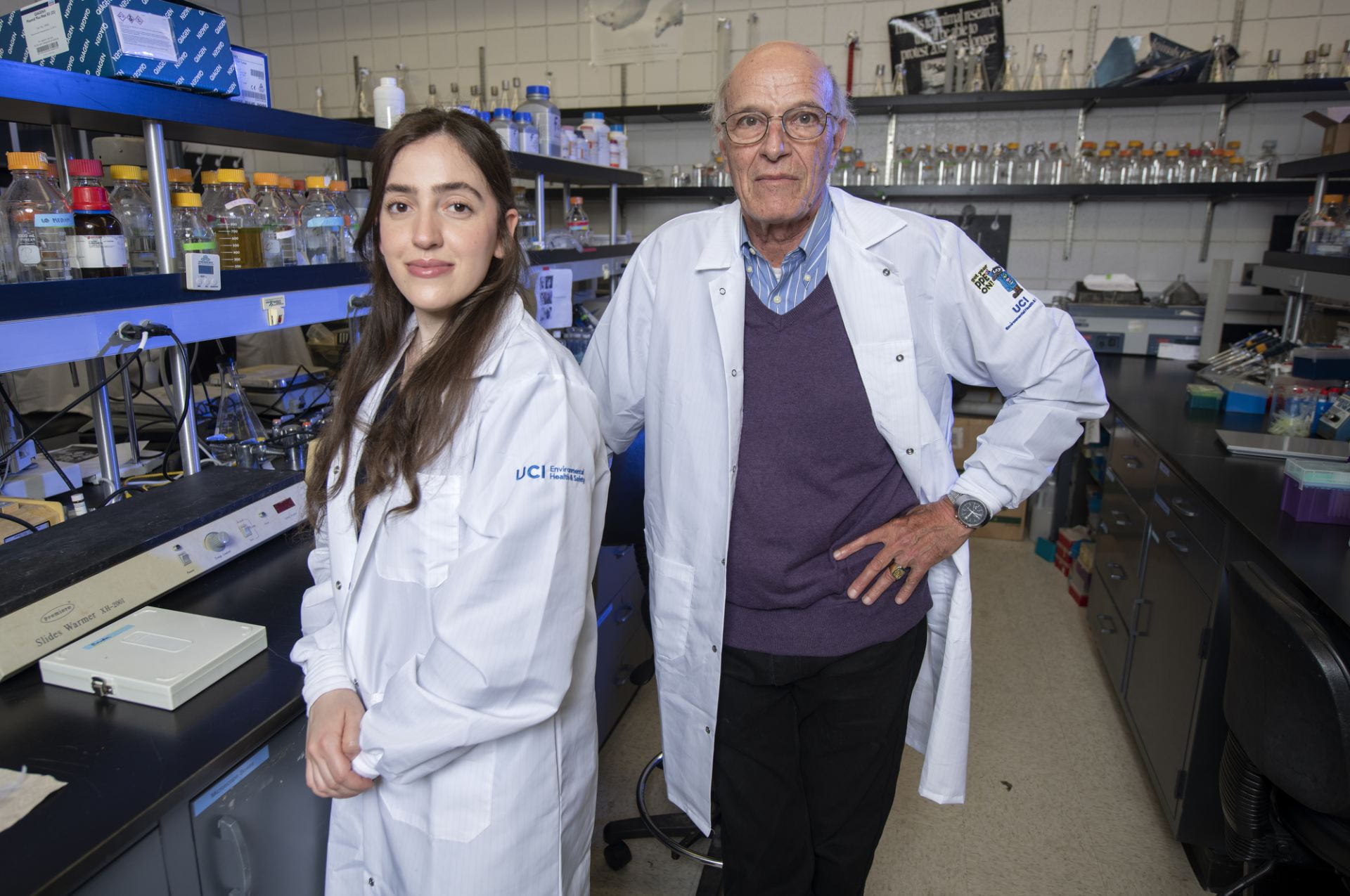UCI-led study finds medicinal plant extract to prevent morphine addiction
Findings point to herbal treatment to potentially help curb the opioid epidemic

Irvine, Calif., Oct. 12, 2021 — The extract of the plant Corydalis yanhusuo prevents morphine tolerance and dependence while also reversing opiate addiction, according to a recent study led by the University of California, Irvine. The findings were published in the October issue of the journal Pharmaceuticals.
(Link to study: https://pharmsci.uci.edu/uci-led-study-finds-medicinal-plant-extract-to-prevent-morphine-addiction-and-potentially-help-curb-the-opioid-epidemic/)
Over the past two decades, dramatic increases in opioid overdose mortality have occurred in the United States and other nations. During the COVID-19 pandemic, the opioid epidemic has only worsened. The documented effects of YHS, the extract of the plant Corydalis yanhusuo, could have an immediate, positive impact to curb the opioid epidemic.
“It is critical that we decrease the use and abuse of opiates,” said Olivier Civelli, Ph.D., professor of pharmaceutical sciences at the UCI School of Pharmacy & Pharmaceutical Sciences and corresponding author. “To help achieve this goal, we are proposing the use of this therapeutic plant. When used in animals, the Corydalis extract prevents pain and the negative effects of opiate use. The next step would be to test it with humans.”
The opioid epidemic was triggered by an overprescription of opioid analgesics. In the treatment of chronic pain, repeated opioid administrations are required. This ultimately leads to tolerance, physical dependence, and addiction.
A possible solution consists of a co-medication that maintains the analgesic benefits of opioids while preventing their adverse liabilities. The research findings show that YHS, when co-administered with morphine, inhibits morphine tolerance, dependence and addiction. If YHS is used with morphine at the start or during pain management, there will be less need of morphine and thus less risk of addiction.
“Opiate tolerance is of utmost importance to opiate users,” Civelli said. “They need to constantly increase the need of opiates to reach the same analgesic response. This is what leads to opiate overdose. YHS prevents opiate tolerance, so there is less need to increase opiate consumption.”
YHS has been used as analgesic in traditional Chinese medicine for centuries. It is considered safe and readily available for purchase, either online or as a “botanical” in certain grocery stores.
Along with Civelli, the research team also included Lamees Alhassen, co-first author and a student in UCI’s Ph.D. in Pharmacological Sciences program; co-first author Khawla Nuseir of the Jordan University of Science and Technology; along with Allyssa Ha, Warren Phan and Ilias Marmouzi from UCI’s Department of Pharmaceutical Sciences; and Shalini Shah from the Department of Anesthesiology & Perioperative Care at the UCI School of Medicine.
About the UCI School of Pharmacy & Pharmaceutical Sciences: Founded in 2020, the UC Irvine School of Pharmacy & Pharmaceutical Sciences is the first public pharmacy school in the Los Angeles-Orange County region. Offering undergraduate, graduate and professional degrees, the UCI School of Pharmacy & Pharmaceutical Sciences spans a continuum from discovery, development, and delivery of new drugs, devices, and diagnostics all the way to optimizing medication therapy in patients and patient populations. Learn more at pharmsci.uci.edu.
About the UCI’s Brilliant Future campaign: Publicly launched on October 4, 2019, the Brilliant Future campaign aims to raise awareness and support for UCI. By engaging 75,000 alumni and garnering $2 billion in philanthropic investment, UCI seeks to reach new heights of excellence in student success, health and wellness, research and more. The School of Pharmacy and Pharmaceutical Sciences plays a vital role in the success of the campaign. Learn more by visiting https://brilliantfuture.uci.edu/school-of-pharmacy-and-pharmaceutical-sciences/.
About the University of California, Irvine: Founded in 1965, UCI is the youngest member of the prestigious Association of American Universities and is ranked among the nation’s top 10 public universities by U.S. News & World Report. The campus has produced three Nobel laureates and is known for its academic achievement, premier research, innovation and anteater mascot. Led by Chancellor Howard Gillman, UCI has more than 36,000 students and offers 224 degree programs. It’s located in one of the world’s safest and most economically vibrant communities and is Orange County’s second-largest employer, contributing $7 billion annually to the local economy and $8 billion statewide. For more on UCI, visit www.uci.edu.
Media access: Radio programs/stations may, for a fee, use an on-campus ISDN line to interview UCI faculty and experts, subject to availability and university approval. For more UCI news, visit news.uci.edu. Additional resources for journalists may be found at communications.uci.edu/for-journalists.


